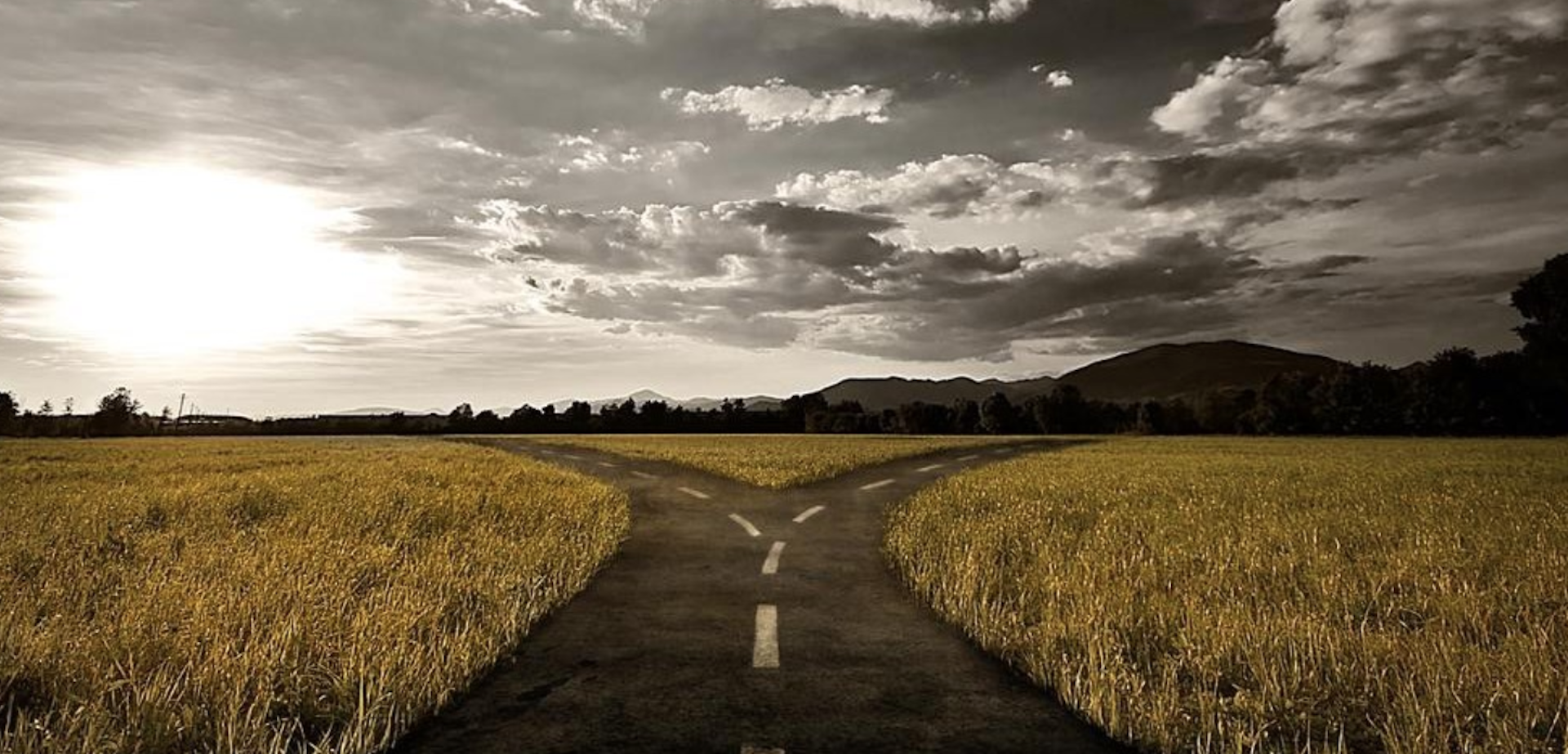Linear thinking, for purposes of this session, shall be deemed to mean structured, rational, and evidence-based. Non-linear is, well, Catch-22. Here is an overview (a shorter version of the intro prepared some years ago for our old Highland book club) as a way to frame the discussion:
Read MoreChalk it up to the human condition. We all love a good story. A problem can arise, however, when a story (intentionally or not) distorts reality. Unless we recognize the Narrative Fallacy for what it is, a simplified and often incorrect view of the real world, we carry a false confidence about our knowledge of the past, our reckoning with basic logic, and its usefulness in predicting the future.
An example borrowed from a previous Science Friday session (in turn, from the work of Kahneman) is illustrative
View this session on perennial philosophy as an open-ended invitation to share your own Truth. There are no wrong answers. Truth may emanate from a religious tradition but need not. The philosophical term perennial wisdom was coined some five hundred years ago to suggest all religions, underneath their seeming differences, point to the same essence (for an overview click here). Universalism opened the path outside the orthodox religions to inspire a wide assortment of metaphysical traditions from 19th century Transcendentalism to Aldous Huxley's 1945 work The Perennial Philosophy.
Read MoreUncanny timing, to be sure. The club's June 7 Weekly Newsletter announced the roll out of a brand new mobile-based operating system including an app to "allow you to manage many aspects of your club experience such as electronic entry door access . . . ." That very same week Google saw errors or slow performance due to "high levels of network congestion" which, among other consequences, resulted in owners of some so-called smart houses unable to enter their homes. They had to break in by other means. It was Space Odyssey's HAL 9000 acting up on earth: "I'm sorry Dave, I'm afraid I can't do that."
Read MoreIt was meant to be just an experiment of sorts. The idea was to set the stage for our discussion on the subject of solitude (MM 4/1/19) by observing total silence during the twenty minute lunch preceding the session. Some participants found the experience uncomfortable, even markedly so. Separate research bears this out i.e. the difficulty many have spending time in their heads. One study found that some people would rather be electrically shocked than be left alone with their thoughts.
Read MoreBehold the ancient Chinese parable of the farmer and his horse to illustrate the quality of equanimity and non-attachment in the face of life's immense complexity (link here: Zen Story). The truth is that fortune and misfortune mean little in the context of the present moment. No event can truly be judged as good or bad, lucky or unlucky, except in the fullness of one's lifetime, if even then. Apply this notion, perhaps, to so many success/failure false life dichotomies e.g. marriage/divorce, lottery win/financial setback, job won/lost, romantic encounter yes/no, even perhaps an illness or an accident.
Read MoreThere is a story, perhaps apocryphal, of a woman one day spotting Picasso in the market and, pulling out a piece of paper, asking him to "do a little drawing" to which he happily complies. Then, handing the paper back to her, he says that that would be a million dollars. "But, Mr. Picasso, that only took you thirty seconds to do this little masterpiece," she responds, to which he relies, "My good woman it took me thirty years to do that masterpiece in thirty seconds."
Here, now, is the perspective of Dominique Gettliffe, founder of Boulder-based Gettliffe Architecture and "lead participant" for our next session, as he addresses what Picasso might have meant about those thirty years i.e. beauty is always the byproduct of hard work.
Read MoreMember Monday is now closing in on a three-year run with over one hundred and twenty weekly sessions to date. With the club closed on 5/27 for Memorial Day, the traditional discussion introduction is replaced by this guide to the paths previously taken.
Read MoreThe decision to parent back in the Eisenhower days was largely the default condition, reflecting the country's post-WWII swagger and industrial strength balance sheet. The world was made safe for . . . . breeding. Thus arose the demographic bulge -- the Boomer Generation -- which moved through time, in that visually compelling phrase, like a "pig in a python." Those excessively domestic fifties gave rise to what some labeled the "cult of the child," denounced by one literary critic at the time as "this most maudlin of primitivisms."
Read MoreAre you reading this sentence as an exercise of free will? No, you are not. You are exercising your freedom of choice, certainly, but said choice was established before you even made it. Free will is an illusion. So say followers of determinism i.e belief that all behaviour has a causal connection and is thereby predetermined.
Read MoreAuthor Anne Spencer Morrow (wife of Charles Lindbergh) put her finger on a fundamental truth when she observed, "Writing is more than living, as it is being conscious of living." Even (maybe especially) the young diarist knows how the blank page can be a wonderful way to "work things out." No audience is necessary, or even desired. The privacy, the very anonymity of it all, invites thought on fire. Some continue the therapeutic practice throughout their adult years.
Compare such private stream-of-consciousness writing to the demands of compelling fiction as reflected in, say, novelist Ernest Hemingway's articulated machismo, "There is nothing to writing. All you do is sit down at a typewriter and bleed." Of course he bled. Not for nothing was he the esteemed Hemingway.
There's a fantastic question I was asked several years ago that has stuck with me. The question was, "what important truth do you believe that few people agree with you on".
At the surface, to find an answer seems simple. One quickly discover, however, that most answers are not novel but in fact common knowledge. "Education is important", "we need to learn to work together", "progressive taxation is good", etc. Though these are all answers that are widely agreed upon, they don't satisfy the "very few people agree with you" constraint.
Read MoreHere's one Whitey who listens from the heart. Kyle Korver, the NBA shooting guard for the Utah Jazz, provides the most tender, personal, and affecting commentary on the subject of racism that could ever be delivered on the white side of the tracks (link: Privileged). While no white should ever presume to speak for a person of color, the piece does invite an honest discussion at a fundamental human level. This Member Monday session is dedicated to the proposition that failure to openly and honestly address the topic of racism only drives it further underground where it continues to metastasize.
Read MoreThere are times when nature, even if temporarily, mocks our attempt to control her. Take public health. The ebola outbreak provided a glimpse of the skull beneath the skin of post-industrial civilization. That was preceded by the AIDS epidemic. Before that, poliomyelitis infected 600,000 Americans, ten percent fatally. The epidemic of Spanish influenza in 1918-19 killed more than half a million in this country alone. And so on, back to fourteenth century Europe where "Ring around a rosie!" described the telltale symptom of the Black Death which wiped out half of that entire continent.
Read More"Many of my friends and City Club members tell me they are sick of politics, and have had it with the extreme partisanship that has divided our country more than anytime in our history, other than the Civil War." Sina Simantob, The Weekly.
Amen to that. Note the underlying dynamic:
“Imagine your boss, who is kind of a jerk, needs your help to finish his projects. If you help him, he’ll keep his job, maybe get a promotion. If you refuse to help him, you’ll become his boss, and he might get fired. Now add in a deep dose of disagreement — you hate his projects and think they’re bad for the company, even the world. That’s basically American politics right now. Bipartisan cooperation is often necessary for governance, but irrational for the minority party to engage in.” That principle, from our focus article (link: The political scientist Donald Trump should read - Vox), speaks volumes of where we find ourselves today -- bloodsport politics, gridlock, and the dialogue of the deaf. In its most basic terms: once a political party has decided the path to governing is winning back the majority, rather than working with the existing majority, the incentives transform; instead of cultivating a good relationship with your existing colleagues across the aisle, you need to destroy them because you need to convince the voters to destroy them, too.
Read MoreMaybe not right away. Maybe refrain from reading the focus essay until the time is right -- when you find yourself most comfortable in your own company, preferably after a solitary meditative "walk in the woods." Only then might you appreciate Thoreau's essay, Solitude (link: PDF).
Even then the writing may at first come across as a tad off-putting. Time-traveling to Thoreau's 1845 Massachusetts Walden Pond requires a certain suspension of present-day reality in the same way the study of a foreign language requires a force-fit into a different cultural context. Some heavy lifting is required. It's worth it. A decade or two of life experience makes this a very different read from what you may recall as a pimply four-eyed adolescent trying to cop a grade in your high school english class.
Read MorePsychologists sometime speak of the false self. Now apply the term in the most literal sense to the unfolding world of the elite college selection process -- from the extremes of the reported world of photoshopped faux athletes and bribed entrance exam proctors to the more mundane examples of the oft-cited ghostwritten essays, fudged transcripts and tightly focused preparation courses. The notion that certain applicant "positioning" may be quite legal (e.g. one's check-the-box performance for years and years in advance as if to edit oneself into some sort of standout doppelgänger) does not change the fact of the underlying motivation is essentially one of creating an inauthentic self.
Read MoreIt's hard to know if we're being played. We are confronted with anecdotal evidence of free-speech suppression on the campuses e.g. feminist critic Christina Hoff Sommers dissed at Lewis & Clark Law School; Jordan Peterson, the self-described free speech warrior, shouted down at McMaster University. Such events certainly make for compelling coverage by the mouth-frothing, feed-me, feed-me, 24-7 omnivore television news network…
Read MoreIt's not like we've ever shied away from taking a hard look at capitalism. An earlier Member Monday discussion centered around a synopsis of Ayn Rand's Atlas Shrugged, the unapologetic embrace of the free market (see Capitalism: MM 05/22/17). There was much "energy" about the real-world implications of her credo (Objectivism), especially given today's reality of resource constraints, global interdependence, deepening income disparity, regulatory capture, and a distorted monetary system…
Read MoreWould you choose to die for the sake of principle? If so, what principle(s)?
We will wipe the figurative dust off a few old Greek marble statues and resurrect a discussion some 2,500 years ago, this time through modern eyes. Socrates back then was facing the death penalty. The facts of the case would evoke an eye-roll, even laughter, today (and perhaps back then). The charge: studying things in the sky and below the earth, corrupting the youth through inappropriate questions, and believing in unauthorized gods. Jury: about five hundred random, "non-expert" citizens. Sentence: death by mandated suicide. Rationale: hard to tell. Possible exacerbating circumstances: Athens' recent stinging loss to Sparta; the accuser's (Meletus) demagoguery, and maybe a touch of chutzpah (not a Greek word).
Read More










